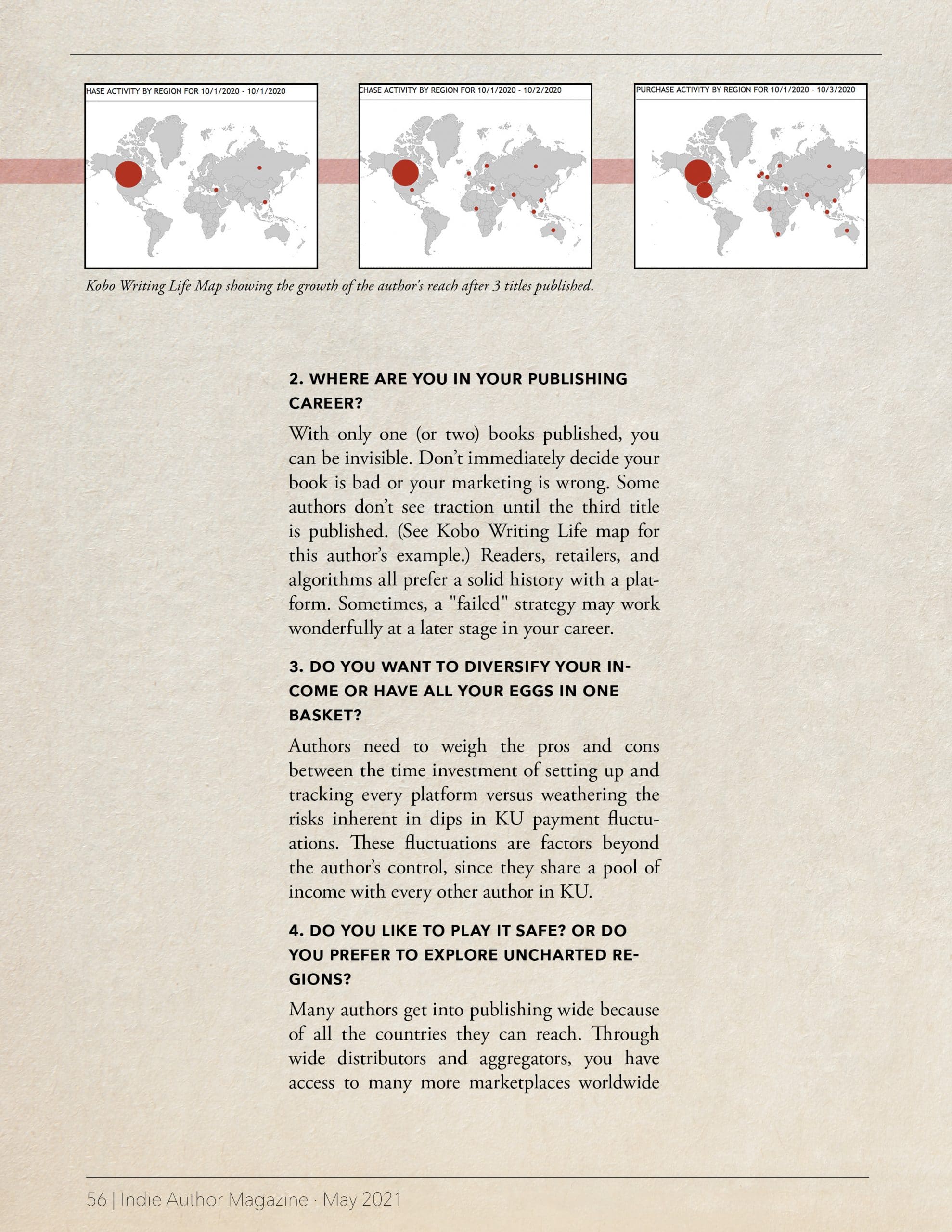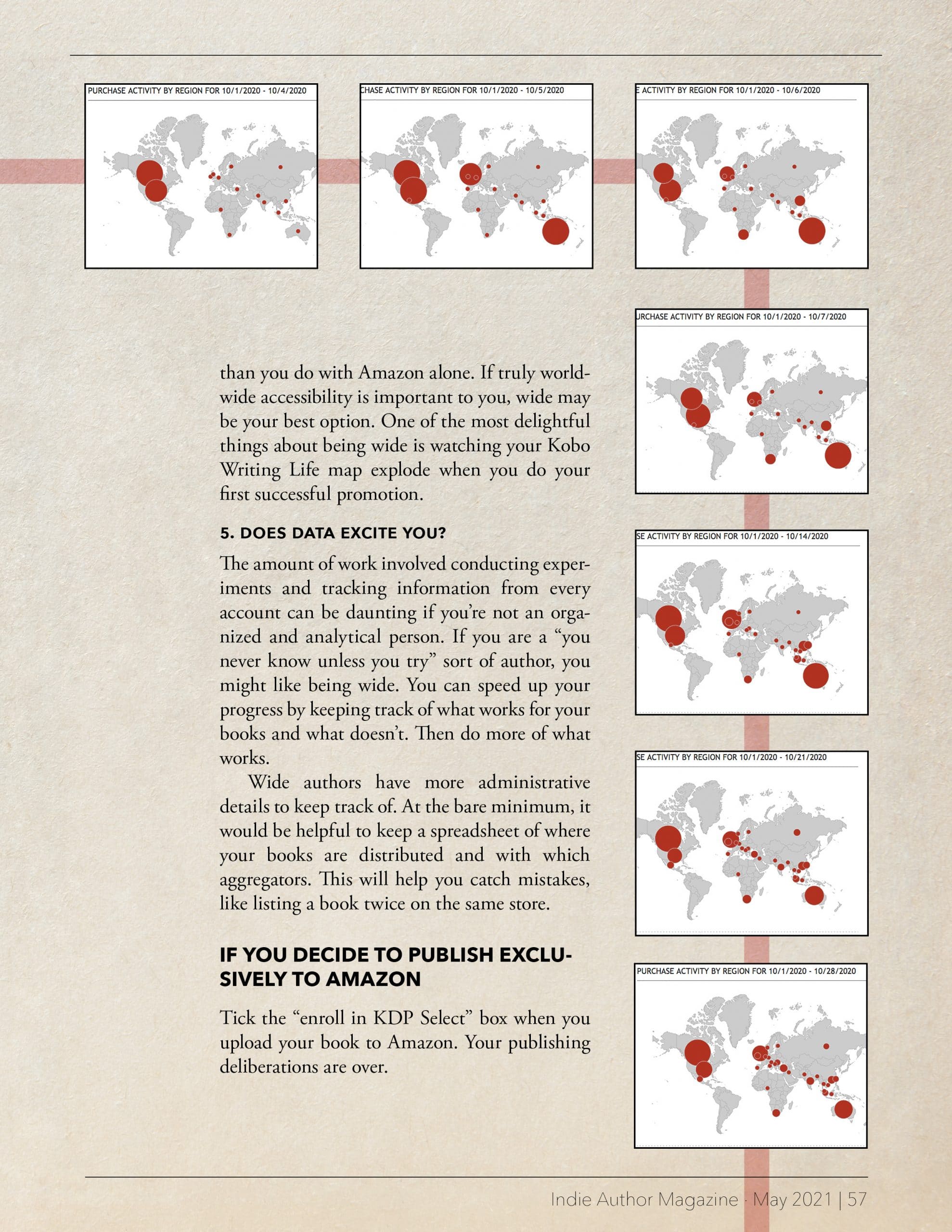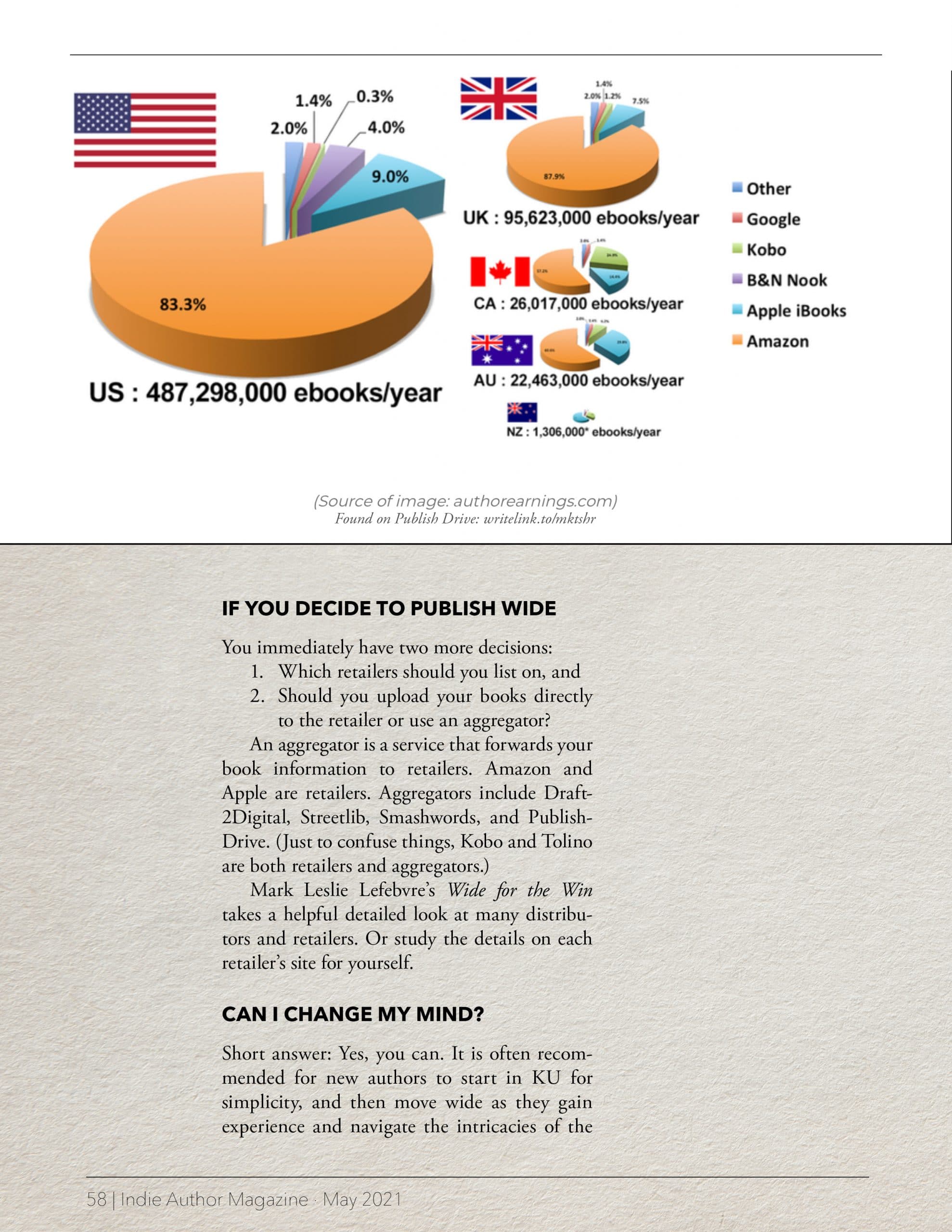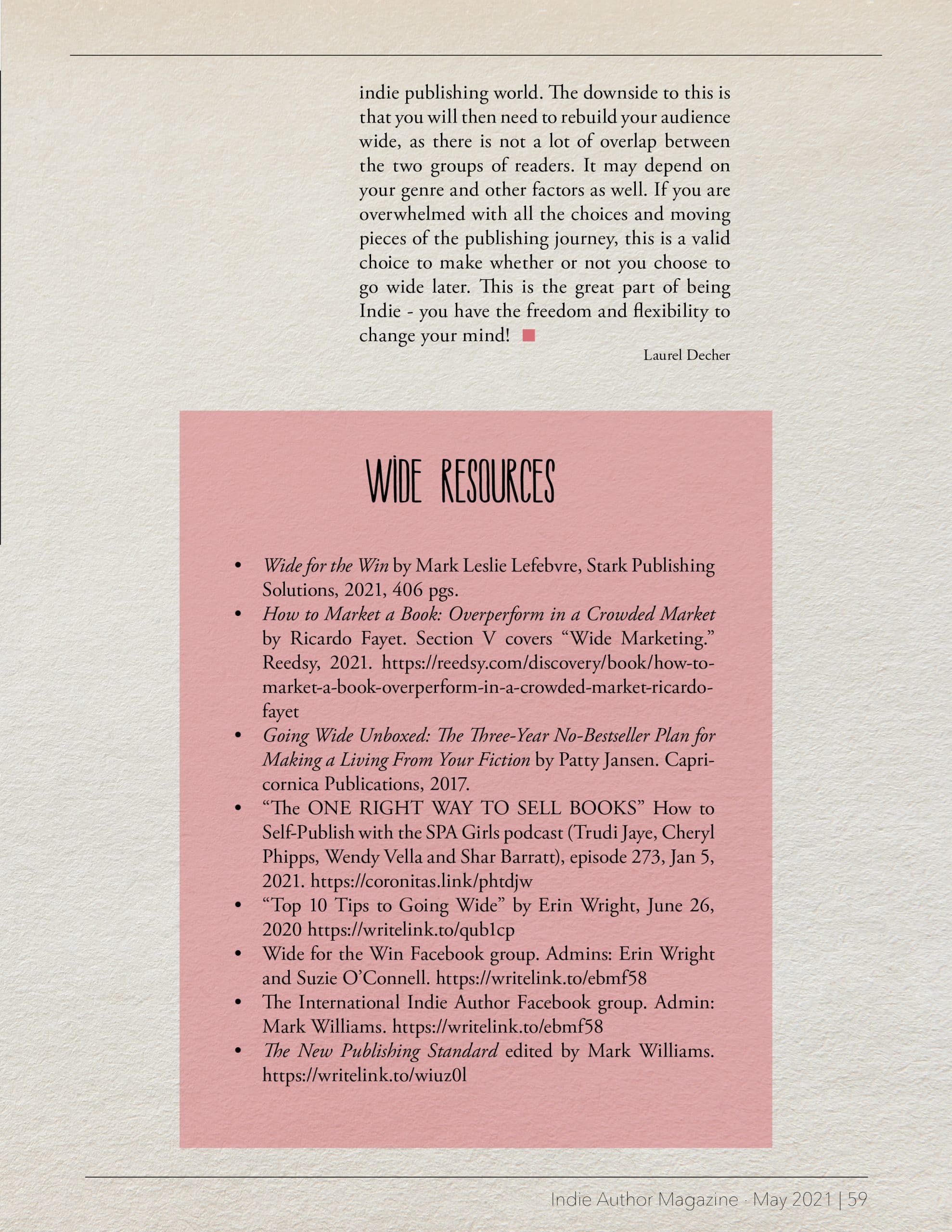“Should you go wide?” is one of the most popular questions in Indie publishing. “Wide” publishing means offering your ebook(s) in as many channels, languages, countries, and formats as you can. The alternative to wide is referred to as “exclusive,” which is signing with Amazon’s KDP Select program, often just called “KU” (referring to Kindle Unlimited – the reader side of KDP Select.)
Print and audio books can always be wide, even if ebooks are in KDP Select.
You have already made hundreds of decisions about your book(s) — main characters, points of view, length, genre, tropes, etc. — the craft decisions. The publishing decisions are no different as an indie author. You decide everything too.
Five questions to ask yourself if going wide is for you: :
1. Do you want to dive or wade into the publishing pool?
You may be the kind of author who doesn’t want to sign any exclusivity agreements, or you may decide being exclusive with Amazon is a way to start small and learn as you go. Before you spend the time setting up an account with every retailer you might publish in KU and, after the time required to stay in the program has expired, then go wide.
2. Where are you in your publishing career?
With only one (or two) books published, you can be invisible. Don’t immediately decide your book is bad or your marketing is wrong. Some authors don’t see traction until the third title is published. (See Kobo Writing Life map for this author’s example.) Readers, retailers, and algorithms all prefer a solid history with a platform. Sometimes, a “failed” strategy may work wonderfully at a later stage in your career.
3. Do you want to diversify your income or have all your eggs in one basket?
Authors need to weigh the pros and cons between the time investment of setting up and tracking every platform versus weathering the risks inherent in dips in KU payment fluctuations. These fluctuations are factors beyond the author’s control, since they share a pool of income with every other author in KU.
4. Do you like to play it safe? Or do you prefer to explore uncharted regions?
Many authors get into publishing wide because of all the countries they can reach. Through wide distributors and aggregators, you have access to many more marketplaces worldwide than you do with Amazon alone. If truly worldwide accessibility is important to you, wide may be your best option. One of the most delightful things about being wide is watching your Kobo Writing Life map explode when you do your first successful promotion.
5. Does Data Excite You?
The amount of work involved conducting experiments and tracking information from every account can be daunting if you’re not an organized and analytical person. If you are a “you never know unless you try” sort of author, you might like being wide. You can speed up your progress by keeping track of what works for your books and what doesn’t. Then do more of what works.
Wide authors have more administrative details to keep track of. At the bare minimum, it would be helpful to keep a spreadsheet of where your books are distributed and with which aggregators. This will help you catch mistakes, like listing a book twice on the same store.
If you Decide to Publish Exclusively to Amazon
Tick the “enroll in KDP Select” box when you upload your book to Amazon. Your publishing deliberations are over.
If you Decide to Publish Wide
You immediately have two more decisions:
- Which retailers should you list on, and
- Should you upload your books directly to the retailer or use an aggregator?
An aggregator is a service that forwards your book information to retailers. Amazon and Apple are retailers. Aggregators include Draft2Digital, Streetlib, Smashwords, and PublishDrive. (Just to confuse things, Kobo and Tolino are both retailers and aggregators.)
Mark Leslie Lefebvre’s Wide for the Win takes a helpful detailed look at many distributors and retailers. Or study the details on each retailer’s site for yourself.
Can I change my mind?
Short answer: Yes, you can. It is often recommended for new authors to start in KU for simplicity, and then move wide as they gain experience and navigate the intricacies of the indie publishing world. The downside to this is that you will then need to rebuild your audience wide, as there is not a lot of overlap between the two groups of readers. It may depend on your genre and other factors as well. If you are overwhelmed with all the choices and moving pieces of the publishing journey, this is a valid choice to make whether or not you choose to go wide later. This is the great part of being Indie – you have the freedom and flexibility to change your mind!





